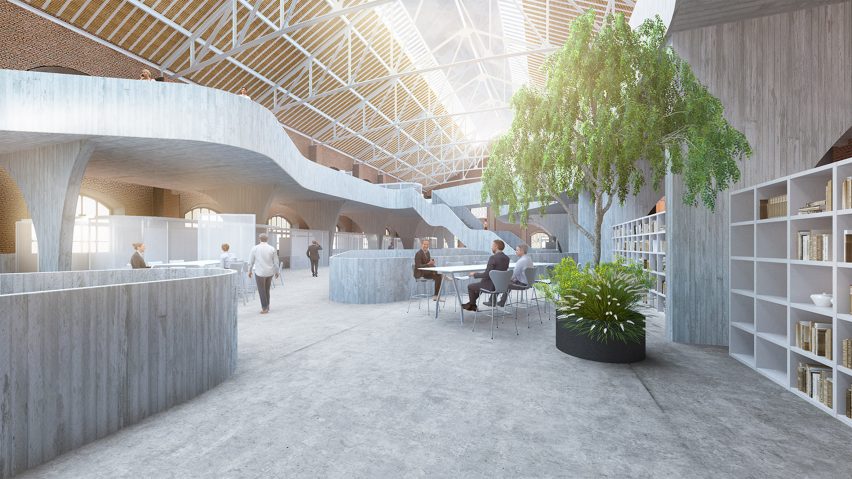Dezeen promotion: studying strategic interior design at IE University has enabled designer Borja Esparza Pamplona to "future-proof" his practice and respond to the rapidly changing demands that his clients have on their offices in light of the pandemic.
Esparza Pamplona is a designer, as well as a workplace and change management consultant at JLL in Madrid, who graduated from the IE School of Architecture and Design at IE University with a master in strategic interior design.
According to Esparza Pamplona, the course provided him with the foresight to design interiors that meet not just present but also likely future needs.
"Thanks to the extensive skills and knowledge I acquired in the masters at IE, I now possess the tools needed to respond to my clients' changing demands with a completely updated viewpoint," he said. "In one word, my perspective is now future-proof."
This, he said, is particularly crucial given the unprecedented speed at which office culture changed and remote working was adopted due to the coronavirus pandemic.
"Covid-19 has pushed us to make a leap forward in embracing new ways of working, incorporating remote work into our day-to-day professional lives and accelerating a process that would have taken a few years to normalise," he said.
"Once we understand that this change is here to stay, the time comes to rethink workspaces and adapt them to this new lifestyle, effectively responding to the needs and demands of today's workers and those of the future. It's here that designers can add the most value."
Esparza Pamplona anticipates that, once the pandemic has been contained, most companies will adopt a hybrid model in which only some communal activities will once again be carried out in a central office.
"After the lockdown, we have come to understand how important socialising and team collaboration is, and how difficult some tasks are to carry out remotely," he said.
"New offices will focus specifically on all of these issues. They will improve workers' relationships by empowering creative tasks, group work and collaboration."
On the other hand, he expects that those tasks that don't require close interaction will likely be carried out from home, a co-working space, cafe or "anywhere there's an internet connection".
"A combination of these models – tailored to each situation –will be mutually beneficial for companies and workers. On the one hand, companies will be able to reduce their offices' surface area and improve their overall quality," he said.
"On the other hand, workers will have greater freedom of choice and be able to adapt to their daily needs. This will offer us all the advantages of remote work, like avoiding travelling and a better work-life balance."
To accommodate this, Esparza Pamplona predicts that larger companies will start introducing suburban satellite offices or renting co-working areas for their workforce, while smaller companies will help their employees to adapt the spaces in their own home to create a productive working environment.
"Although the future remains uncertain, it's up to designers to try to find answers," he said.
"Strategic interior design has never been so important, and now is the time to specialise in this critical field. I would recommend that other designers continue to anticipate future change by remaining informed and prepared."
Find out more about IE University's strategic interior design programme by visiting the institution's website.
Partnership content
This article was written by Dezeen for IE University as part of a partnership. Find out more about Dezeen partnership content here.

